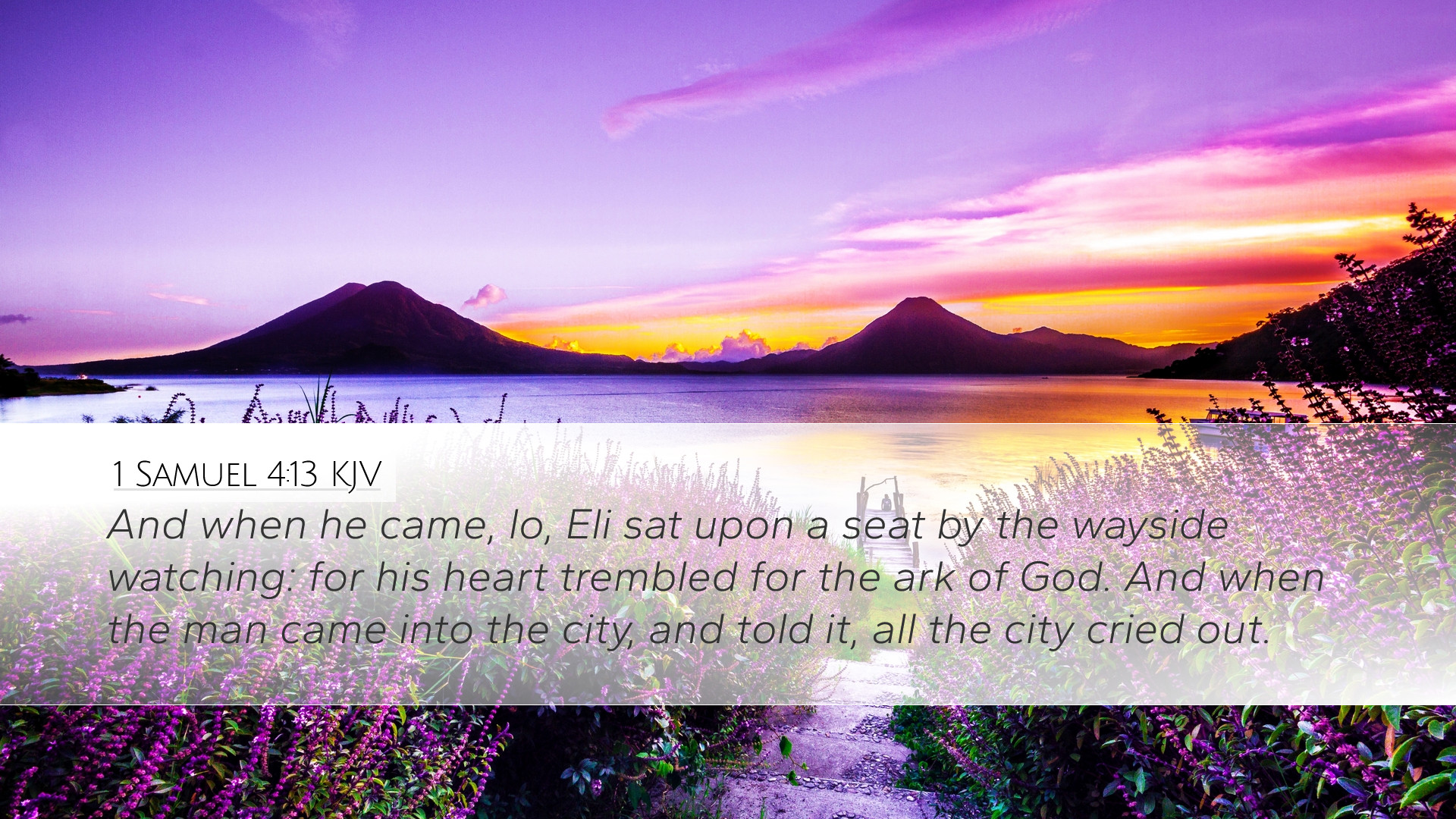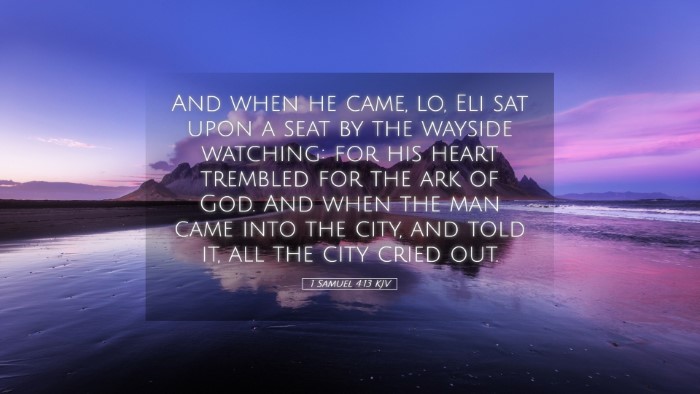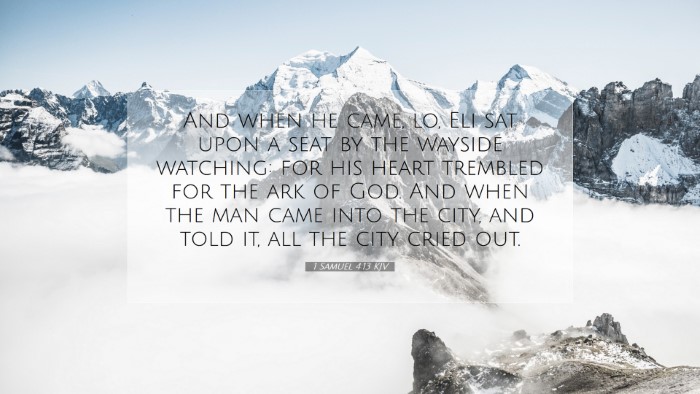Commentary on 1 Samuel 4:13
Verse Text: "And when he came, lo, Eli sat upon a seat by the wayside watching: for his heart trembled for the ark of God. And when the man came into the city, and told it; all the city cried out."
Introduction
The narrative of 1 Samuel 4:13 is pivotal in the history of Israel, particularly as it revolves around the significance of the Ark of the Covenant and the spiritual state of God's people during a time of crisis. This commentary will explore the verse in depth, utilizing insights from various public domain commentaries to provide a nuanced understanding relevant for pastors, students, theologians, and Bible scholars.
Contextual Overview
This verse occurs during a climactic moment in the battle between Israel and the Philistines. The Israelites face not only a military defeat but also the profound loss of the Ark, which symbolizes God’s presence among them. Eli, the high priest, serves as a tragic figure in this narrative, representing a priestly leadership that has failed the nation spiritually.
Eli's Concern
Eli's position, described in this verse, is one of deep anxiety. The public domain commentaries provide several insights into his state of mind:
- Fear for the Ark: Matthew Henry comments on Eli’s trembling heart, emphasizing that his primary concern is the Ark of God—a legitimate reflection of God's glory and presence. He understood that the Ark was central to Israel's identity and relationship with God.
- Symbol of Spiritual Decline: Adam Clarke points out that Eli’s role reflects the spiritual decline during his priesthood, and his concern for the Ark may also be an indication of his awareness of judgment upon the nation. It suggests a period where true reverence for God had greatly diminished.
- Physical Representation: Albert Barnes provides insight into the physical posture of Eli. Sitting by the wayside, Eli embodies a passive observer. His physical position contrasts the urgency of the situation, illustrating a leader burdened yet immobilized by his fears.
The Arrival of the Messenger
The verse describes the sudden appearance of a messenger, a harbinger of news that will alter the course of events for Israel and Eli. The reactions to this news are crucial:
- Impact of News: The report that the messenger brings is one of tragic losses and defeats. Matthew Henry remarks that the news is not merely military but profoundly personal, affecting the very heart of Israel's worship and relationship with God.
- Community Reaction: The reaction of the city “crying out” as recorded by the Scripture indicates the collective emotional state of the people of Israel. Albert Barnes notes that this tumult illustrates their grief and fear regarding the Ark's captivity, as it represented not only loss but abandonment by God.
Theological Reflections
The theological implications of this verse are significant as they unfold the deeper issues of faith, disobedience, and divine presence. Several reflections emerge from the analysis:
- The Ark as a Symbol: The Ark was more than a religious artifact; it served as the locus of God's presence among His people. Adam Clarke emphasizes its importance in Israel’s identity, which correlates with the nation’s faithfulness to God.
- Leadership and Accountability: Eli’s narrative highlights the responsibility of pastorate leadership in nurturing the spiritual health of the community. Pastors and scholars can reflect upon their role in maintaining connection with God and the community’s faith journey.
- The Effects of Disobedience: The losses faced by Israel can be seen as a direct consequence of their disobedience. The commingling of spiritual neglect and military defeat provides a warning about the dangers of straying from God’s commandments.
Conclusion
In summary, 1 Samuel 4:13 serves as a profound reminder of the vital relationship between God's presence and His people. Eli’s fear and the subsequent mourning within the community speak to the broader theological truths regarding divine presence, leadership, and community. Each commentary highlights different shades of meaning, shedding light on the motivations, actions, and repercussions of the events that transpired.
Application
For modern-day readers, particularly pastors and leaders, this verse offers numerous lessons:
- Awareness of God's Presence: Just as Eli felt fear for the Ark, there should be a heightened awareness of God’s presence in our lives and ministries.
- Crisis Response: How do we respond in times of crisis? The reaction of the people serves as a call for collective engagement and faithful remembrance of our God.
- Spiritual Watchfulness: This narrative encourages vigilance in leadership and the necessity for a sincere relationship with God to guide our congregations faithfully.


